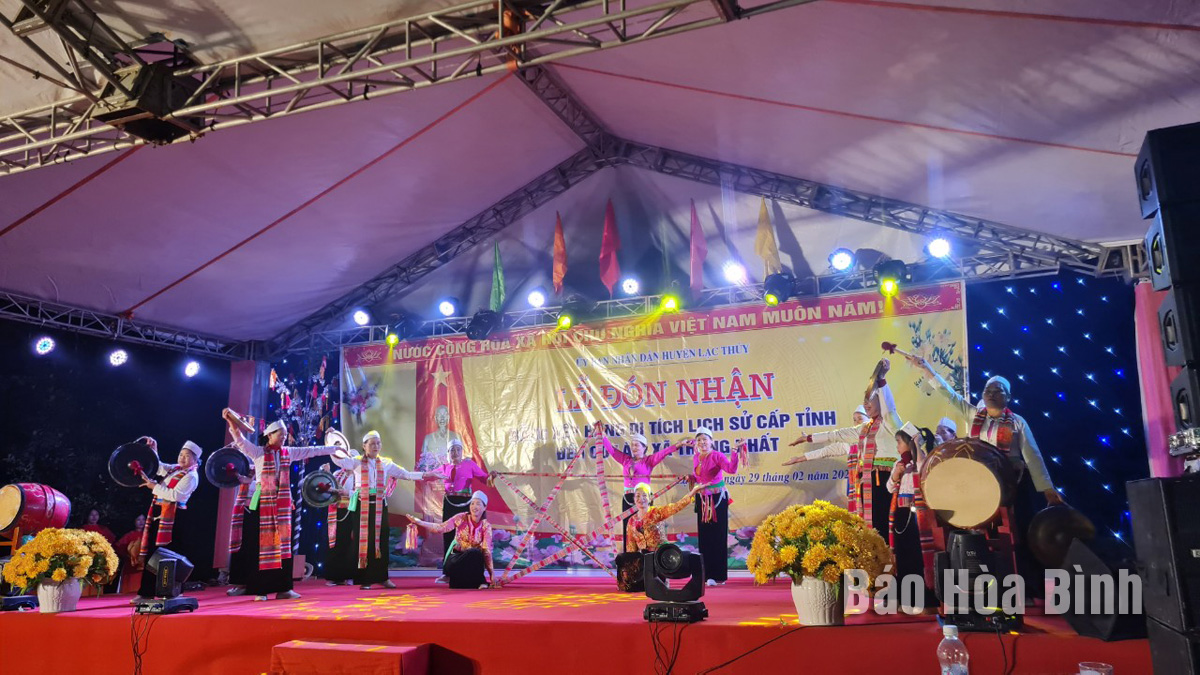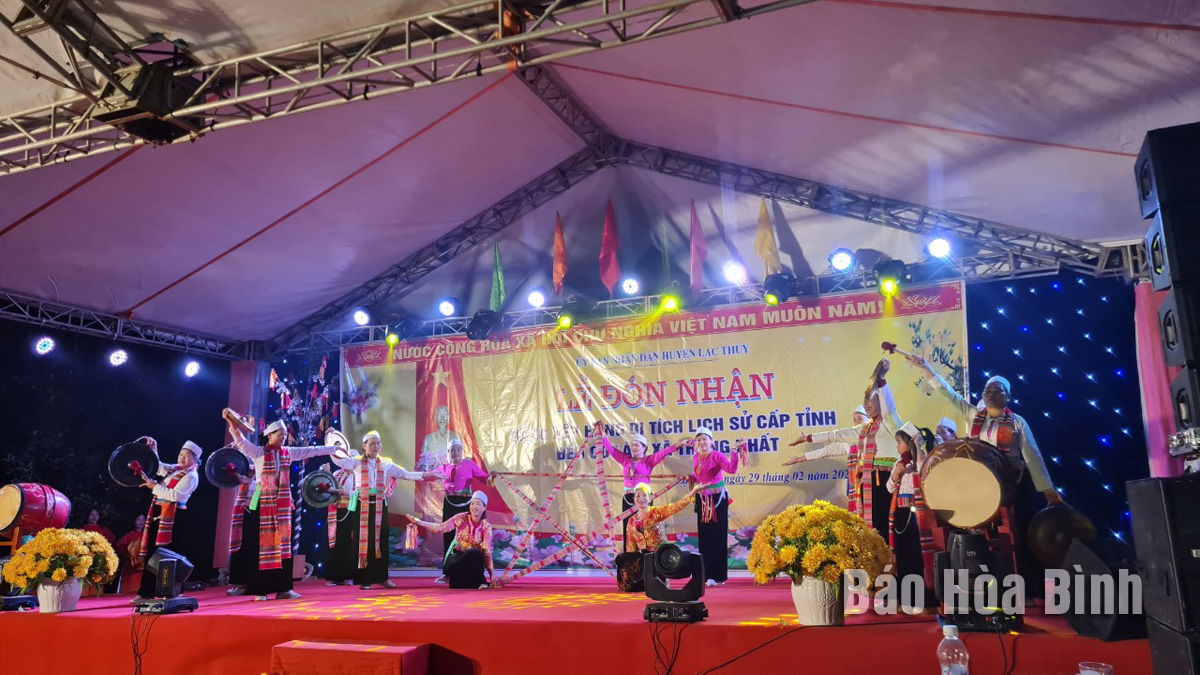



A cultural show by the gong club of Minh Thanh Village marked the reception of the provincial-level historical relic certificate for Co Lao Temple in Thong Nhat Commune (Lac Thuy) in 2024.
To preserve and promote the cultural identity of the ethnic minority, and gradually eliminate the outdated customs trying to build a new cultural lifestyle, particularly in wedding ceremonies, funerals, and festivals, the Communist Party Committee of Thong Nhat Commune has intensified the propaganda efforts and mobilized the participation of both the political system and the citizens, ensuring that everybody has the responsibility to implement and preserve it.
To implement a cultured lifestyle in weddings, funerals, and festivals, the commune’s Party Committee has devised the comprehensive plans and directed the various sectors, organizations, and the residential areas to implement these initiatives earnestly. The commune has intensified and diversified its propaganda efforts through the grassroots radio systems, the direct communication integrated with the community activities, and meetings in the residential areas. It incorporates the content of practicing the civilized lifestyles in marriage, funeral ceremonies, and festivals into evaluation criteria, assessing the cultural family titles, and the village cultural recognition. They have been connecting the implementation of the civilized lifestyles with the movement "All people unite to build cultural life”, organizing for the households to register for building the cultural families and committing to practicing the civilized behaviors in marriage, funerals, and festivals. This has contributed to building the grassroots cultural life towards modernity while still preserving the traditional cultural characteristics of the locality.
In wedding ceremonies, the commune has streamlined proceedings by eliminating the outdated customs and the cumbersome rituals, reducing the duration to 1-1.5 days. The traditional wedding protocols have been simplified to 2-3 steps, comprising engagement, betrothal, and marriage, without elaborate feasts or excessive sound systems. At the weddings, many unique cultural aspects are being revived, such as the traditional courtship (Giao duyen) singing, wearing traditional costumes of Muong ethnic group, and the absence of cigarette smoke. The people have strictly adhered to the Marriage and Family Law regarding the age requirements and registered their marriages according to the administrative procedures.
Regarding the funerals, many families have opted for cremation to uphold the environmental cleanliness and decorum, eliminating the tradition of scattering gold along the procession route. Based on the communal agreements and conventions established by village clusters, every year, Thong Nhat commune actively guides villages to adjust and supplement the content regarding cultural behavior and build new rural areas into these agreements. Any inappropriate content or regulations will be replaced with new ones that are suitable for the actual situation. As a result, the community awareness, the spirit of solidarity, the responsibility, as well as the cohesion and solidarity within each residential area, have been strengthened and revitalized.
Especially, to preserve and promote the traditional cultural values, Thong Nhat Commune has established seven gong teams, two traditional music groups, one Muong-language singing club, and one club preserving the ethnic cultural identity. The commune currently boasts four Mo Muong artisans. These clubs have been attracting the participation of the diverse members of all ages The enthusiastic teaching of Muong language, the traditional songs, and the dances of the Muong ethnic group by various clubs has also contributed to igniting the passion for the ethnic culture among the younger generation, across all social strata.
To further propagate the civilized practices in weddings, funerals, and festivals, the Party Committee and People's Committee of Thong Nhat Commune are committed to intensifying propaganda efforts and enhancing the citizen's awareness and actions. At the same time, they continue to lead and implement the movement "The entire people unite to build a cultural life”, integrating the criteria for practicing the civilized customs into communal agreements, conventions, and the recognition of the cultural honors and commendations for the officials and the party’s members.